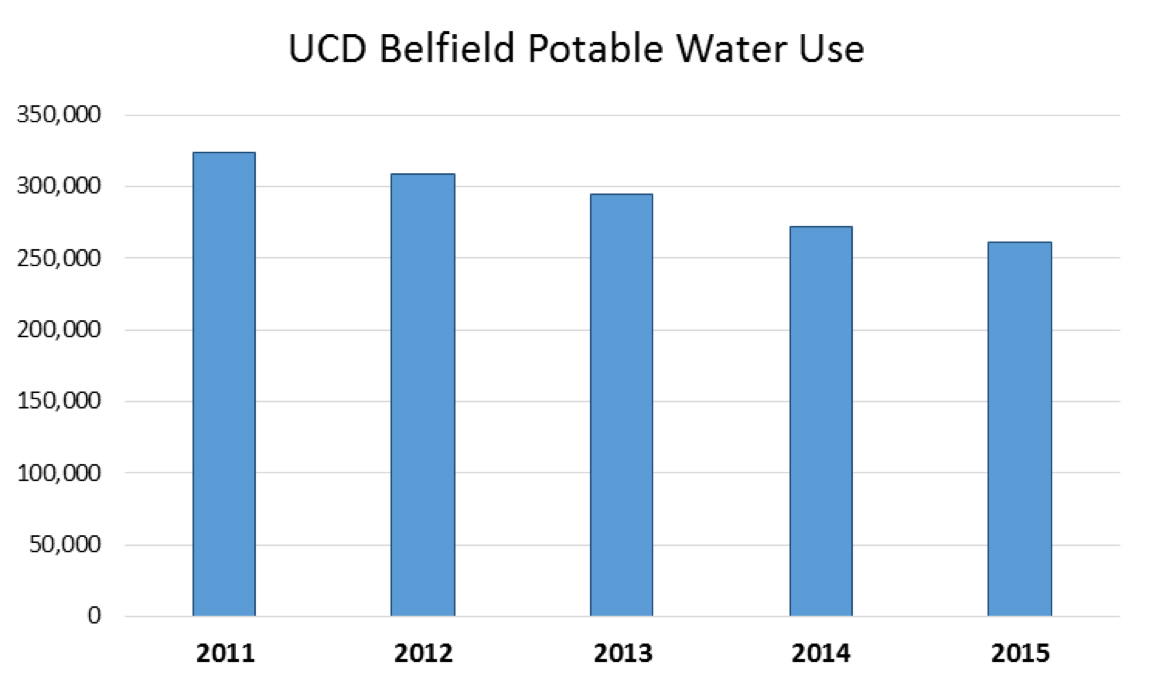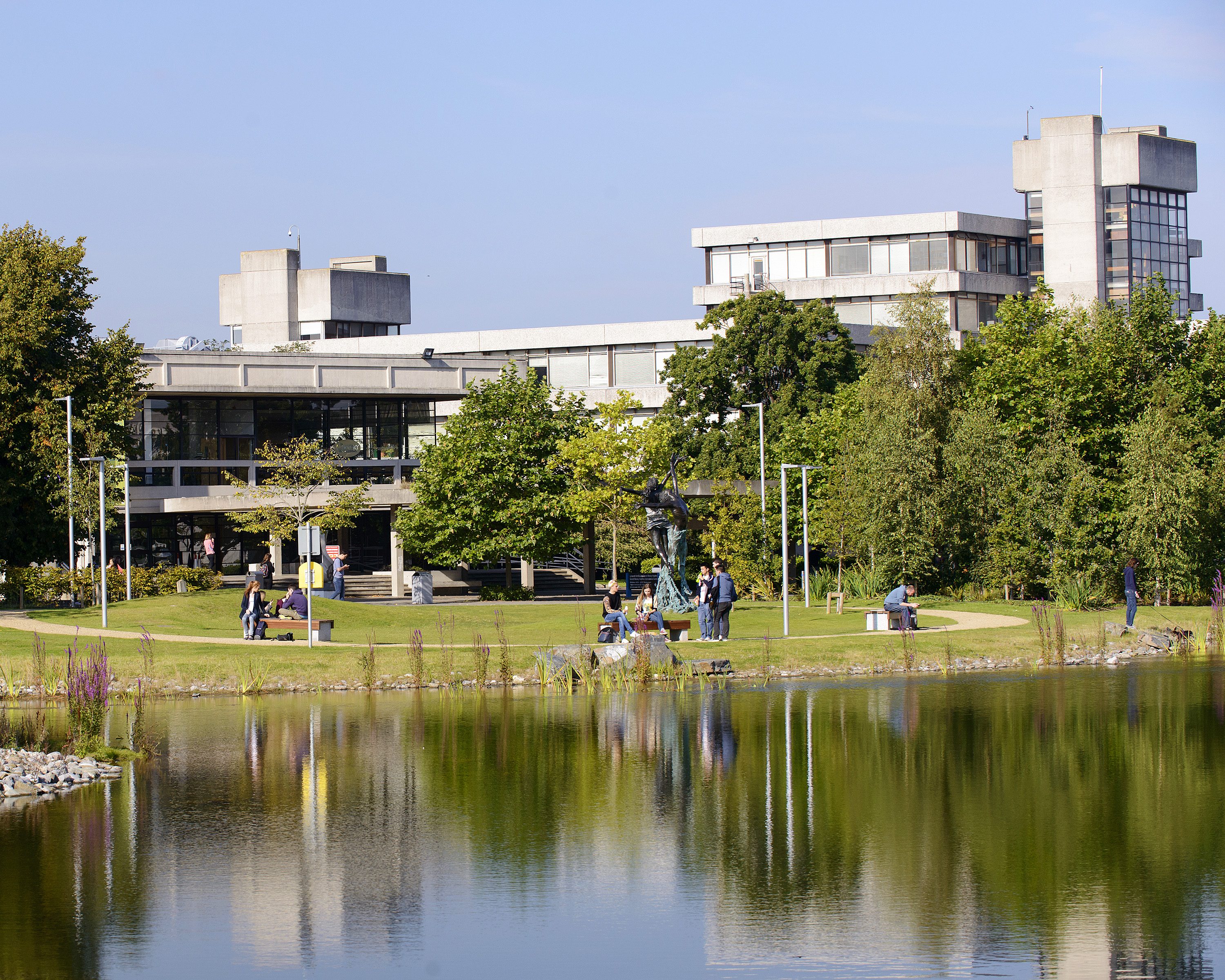With the knowledge of continued expansion due to UCD’s intensive capital building programme and with ageing water infrastructure in some areas of the campus, a strategic plan was formulated aimed at carrying out a major renewal and upgrade programme over a 5 year duration starting in 2010/2011. The over-riding aim of this strategy was to conserve water, improve control, reliability, firefighting ability, water quality and monitoring of the existing water main network and to enhance surface water protection.


To implement this strategy it was proposed to carry out a number of distinct programmes as follows:
- Watermain rehabilitation and renewal programme
- Water metering roll out at both building and district level
- Development of alternative sustainable sources of water e.g. Rainwater Harvesting and Whitewater.
- Water conservation and demand management.
- Development of surface water attenuation features as a campus amenity.
- Updating of water network infrastructure drawings following ground penetrating radar (GPR) surveys.
Key Results of Implementing the above include:
- In excess of 90% of principle buildings are now metered.
- Unaccounted for water (unmetered/leakage) is now less than 14% of total water used due to a combination of additional metering and the elimination of leakage within the network as a result of the watermain renewal programme.
- Water Leakage/wasted water has been reduced by 40% in the past 5 years
- Mains/Potable water usage has decreased by 18% in the past 5 years. Adjusted for the campus building growth during this time this equates to a 30% decrease. This is equivalent to €200,000-€250,000 saving per annum for water and wastewater combined.
- A large part of the water network and infrastructure has been modernised in recent years ensuring that the campus is catered for to continue to grow and develop to match the campus development plan.
- Key water based activities such as pitch irrigation; window and road cleaning and cooling are now carried out using non potable water.
- Additional alternative non-potable water supplies have been developed and the non-potable water network continues to expand Ashfield Students residences and Engineering and Materials Sciences Centre were recently connected in 2016 reducing the demand for potable/treated water use.
- The Campus Upper Lake has been delivered as a water attenuation feature for the Sutherland School of Law and Confucius Institute for Ireland as well as future developments in this zone of the campus – avoiding the need for large underground tanks. Additionally it was designed to be biodiversity resource and campus landscape amenity space.
- Significant white water expansion to Engineering Building, Library, Tierney and Newman for non-potable uses.
- Ashfield demonstrates a combination of rain-water harvesting and white-water use which has allowed for all non-potable water uses to be met without the need for mains water.

